|
Today, the Catholic Apostolate Center is celebrating its 8th anniversary of reviving faith, rekindling charity, and forming apostles. We have both had the honor of being a part of this amazing and spirit-filled endeavor since its earliest days and remember fondly what it took to get started. When Fr. Frank Donio, S.A.C. gathered a small group of committed collaborators together to think about what the Pallottines of the Immaculate Conception Province could do to answer the Holy Father's call to a new evangelization, it was clear that we needed to work with active Catholics. We felt called to meet them where they were on their individual faith journeys. This meant that we needed to engage all that the internet had to offer, to use emerging social media, and to reach people where they were conducting their daily lives. In the last eight years, the work done by the Catholic Apostolate Center has impacted the lives of thousands of people through conferences and events; hosting hundreds of webinars and Facebook Live events; providing learning and educational opportunities through seminars and speaking engagement; making spiritual posts on Facebook, Twitter, Instagram; developing programs with our affiliated partners; and providing space for collaboration among Church entities. All the while, our mission is not necessarily to reach the masses, but to reach the one. We work collaboratively to develop our resources – working with the individual gifts and talents that each member of our team and our collaborators possess, always leaving room for the Holy Spirit. Each of us has grown professionally and personally in an environment that challenges, affirms, and provides us opportunities to share our own gifts through presenting, writing, video production, marketing, management, and administration. We look forward—through the Holy Spirit and God’s Divine Providence—to continuing our mission for another eight years and beyond.
0 Comments
“The religious commitment to procure the propagation of the Holy Faith throughout the world cannot be separated from that to procure to revive the Faith, and to rekindle Charity among Catholics, and this not only because such is the order of Christian Charity, but also because there is a need to rekindle the Holy Faith and to rekindle Charity among Catholics.” – St. Vincent Pallotti (OOCC III, 16)
As we celebrate today the 8th anniversary of the Catholic Apostolate Center during this Extraordinary Missionary Month declared by Pope Francis, these words of St. Vincent Pallotti offer us a summary of the interconnection of the Church’s missionary efforts, encompassing what we now call Evangelization and New Evangelization. Pallotti understood this in the first half of the nineteenth century. He knew then what the Church is calling for now, co-responsibility of all the baptized for the mission of Christ and his Church. We are all sent forth as apostles, as missionary disciples! The Center accomplishes its mission of reviving faith, rekindling charity, and forming apostles through intense collaboration, or “holy cooperation” as Pallotti would call it, with God and others. The only way the Center has come to this day is through the great collaboration among staff, collaborators, advisors, Pallottines, consultants, affiliates, and many others who are co-responsible for its mission. The Holy Spirit who came upon the Blessed Virgin Mary and the Apostles and disciples in the Cenacle in Jerusalem has sent us forth and guided us in ways that we could never have imagined back in 2011 when the Center began. We do this always in service of Christ and his Church just as Pallotti did. Thank you for your support of our efforts and know that our prayers are with you! Mary, Queen of Apostles, pray for us! St. Vincent Pallotti, pray for us! May the Charity of Christ urge us on! “Come away by yourselves to a deserted place and rest a while.” (Mark 6:31)
The Apostles had been sent out by Jesus and reported back all that they had done (Mark 6:30). He knew that they needed to care for themselves, so they set out in the boat to go and rest. But, what did they find when they arrived? Over 5,000 people waiting to be fed both spiritually and physically. Despite their probable fatigue, they continued to minister to the needs of the crowd. Their rest was not long, but they did have time together in the boat away from the crowds. They also rested in the Lord as he spoke to them and the crowds. Self-care, therefore, does not mean long periods of time, but that which is needed to move us into fuller service for Christ. When moments of self-care such as prayer, study and spiritual reading, appropriate times of rest and relaxation, or time with friends and family are neglected, living as an apostle who accompanies others into deeper life in Christ can become challenging. Self-care is not self-focus; it is not self-serving. Very often caregivers, especially of the elderly or infirmed, become ill themselves because they have not set apart time for self-care. It is understandable. They want to give fully to their loved ones. Those in ministry or the apostolate want to do the same for the beloved of Christ. In both instances, though, great damage can come to the caregiver—leaving them unable to care. Self-care is meant to assist in becoming more other-focused, more self-giving. In many ways, the great founder of Western monasticism, St. Benedict, whose feast day is today, understood well what is at the heart of Christian self-care – ora et labora – prayer and work in the context of a stable community life. When either are neglected, then one is not able to give fully for the Lord. Life in community, whether in a religious community such as a monastery, or in the community of faith, gives one a stable place to be accompanied, to grow in the spiritual life, and to rest with Christ, especially in the Eucharist. Relationships can be built in trust and burdens can be shared. Peace that comes from the Prince of Peace can then be found. It is this peace, love, and mercy that we share with others as his apostles. In the last months, a former student of mine discerned that he is called to live as a Benedictine, another discerned that he is called to the Dominicans, another as a diocesan priest, and two others that they are called to marriage. Prior to these decisions, there was much prayer, but also a bit of a lack of inner peace. Accompanied by many, these young adults came to peace in their decisions as their way to follow Christ as his apostles. Please pray for them. Pray also for those, especially in ministry and apostolate, who are not properly caring for themselves. May we accompany them to care for themselves so that they may better care for the People of God. May the Charity of Christ urge us on! For more resources on Self-Care in Ministry, please click here. “Think big, start small.” That was the one-phrase summary that my working group at the Post-Synodal Forum on Young People presented on our last full day at the Il Carmelo retreat house. For three and a half days, over 250 youth and young adults from over 110 countries and over 30 Catholic groups and movements gathered in Rome to discuss the Synod on Young People, the Faith, and Vocational Discernment and Pope Francis’ Apostolic Exhortation Christus Vivit. My group was comprised of fourteen delegates who represented nations including India, Germany, Zambia, Slovenia, Moldova, and more. We came up with these four words (Think big, start small) because over the course of the many panels, presentations, interventions, and working group meetings, we realized just how big of an endeavor engaging the young people of our global Church is. Country to country, diocese to diocese, some general patterns remained the same. Christus Vivit and the synod present a beacon of hope; unfortunately, in many countries the document has not been widely read, although it has been generally well liked when it has been read. In many places, the document is not translated into the necessary languages. My friend Stephen from Hong Kong, for example, mentioned that young people simply cannot afford a printed copy of the document in his country. Many young people mentioned how they face opposition from clergy and lay people regarding their active role in the Church. One of the delegates from Ireland recalled an instance when a new dishwasher was touted as more important for her parish than funds to go to youth ministry when they were needed. The challenges that face us are great and they are global, but young people, and the members of the clergy and laity that support them and collaborate with them, will not be stopped. In chapter four of Christus Vivit, Pope Francis reminds young people that they are loved by God, that Christ saves us, and that Christ is alive! These words have settled deep into the hearts of young people and the people who advocate for and accompany them. Many times, Pope Francis has reminded young people that they are protagonists in the Church, that young people are not just the future of the Church, but also the now of the Church. These realities came up over and over again in our discussions at the forum. I was amazed by the initiatives in Ghana for ministry to young people that included a separate and distinct ministry to young people who are imprisoned. I was happily surprised to hear that many nations had national youth organizations that are led by young people. For example, my friend from India, Jesvita, is the most recent president of an Indian Catholic Student movement. Importantly, these initiatives are not ones that exist within a “young people bubble,” but are movements and ministries of collaboration that see the young people, the clergy, and their ‘elders’—as Pope Francis calls them in Christus Vivit—working together, being synodal. The biggest takeaways from this forum are encouraging to say the least. Young people understand the need to be people of action, or apostles on mission. Only then can we truly be leaders. These actions must be concrete, not vague generalizations, and they must be collaborative. Young people want to integrate what the Holy Father has written for us in Christus Vivit into how we approach our ministry to young people. The principle of accompaniment was one that was constantly highlighted at the forum, proof that young people want to be a generation of encounter. The first line of our ten-line summary that was presented to the Dicastery and the Holy Father read, “we are the face of Christ, fully alive.” And this is how we move forward, with an understanding of the reality that we are the face of Christ in our world, that we are protagonists. Acting with Christ as our guide, we seek the conversion of hearts, both ours and those of others, and we have dreams that are big. May we never be deterred, may we always think big and start small, and may we always seek to build the Kingdom of God by walking together, listening to one another, and persevering in our shared faith. For more resources on the Synod on Young People, Faith, and Vocational Discernment, please click here. Are you tired of the feasting? We are at the tail end of feasting after the Easter season with the celebration of the Solemnity of Corpus Christi last Sunday. We experienced the 50 days of Easter, the Solemnity of the Ascension of the Lord, Pentecost, the Solemnity of the Holy Trinity, and finally, the Solemnity of Corpus Christi. In my family, we have partaken in a fair share of feasting on treats, and I am almost ready for a period of fasting again. The transition from the Easter season into Ordinary Time can lead to a misunderstanding of what the Church is calling us to during this liturgical season. It is easy to see Ordinary Time as boring or as a time for laziness, but if we look at the liturgical calendar and journey along with the Apostles in the Scriptures, we can see that it is just the opposite. Reflecting back on the Scriptures read during Lent and the Triduum, we see the disciples’ confusion about what Jesus was preparing them for. He warned them often that He had to suffer, die, and rise, and yet they were still in hiding and unsure of their mission after the crucifixion and Resurrection. Scripture states that they were locked in the Upper Room in fear of the Jews after Christ’s death and then that they were left “looking intently at the sky” after Christ’s Ascension. It is not until Pentecost, when the Holy Spirit descends upon the disciples, that the gift of understanding is given to them and they are able to go forth and spread the Gospel message. In celebrating the Solemnities of the Ascension and Pentecost after Easter Sunday, we come to understand our role as Christians on mission. We are reminded that we too are equipped with the Holy Spirit for the call to go out to all the nations and proclaim the Good News, baptizing in the name of the Trinity. We next celebrate the Solemnity of the Holy Trinity, a day to contemplate that the Holy Trinity is relationship itself, and we are invited into that relational exchange of love among Father, Son and Holy Spirit. As the Catechism explains, "By the grace of Baptism ‘in the name of the Father and of the Son and of the Holy Spirit,’ we are called to share in the life of the Blessed Trinity” (CCC 264). This Solemnity invites us to ponder the vastness and majesty of God in three persons and His great love for His creation. Finally, the Church celebrates the Solemnity of Corpus Christi (Latin for “Body of Christ”). Christ, after the Ascension, remains with us in the bread and wine transformed into His Body and Blood during the celebration of the Mass. This Solemnity focuses our attention and hearts on the greatest gift to the Church: the Body, Blood, Soul and Divinity of our Lord in the Holy Eucharist. Together with the celebration of the other feasts after Easter Sunday, the celebration of Corpus Christi is a moment of grace given to us today that propels us into this season of Ordinary Time. If we look at the calendar, the Church has been preparing our hearts to enter into this celebration of Corpus Christi. We needed Jesus to establish the Eucharist (Holy Thursday), to suffer, die and rise (Triduum), to return to the Father (Ascension), and to send the Church an outpouring of understanding for Her mission through the Holy Spirit (Pentecost). As a result, we can ponder and enter into the life of the Holy Trinity (Solemnity of Holy Trinity). All of these feasts prepare the Church for the Solemnity of Corpus Christi and for our journey into Ordinary Time. The Holy Eucharist is the strength for our journey in the ordinary. The Body and Blood of Jesus assists us in following the will of God as we receive God Himself. The Solemnity of Corpus Christi can be celebrated with hope that Jesus is with us in this Holy Sacrament, and the Church is calling us to continued growth in Ordinary Time. Questions for Reflection: How can you use Ordinary Time in order to grow in your faith? What graces from Lent and Easter can help propel you into Ordinary Time? For the average modern-day Catholic, one’s familiarity with St. Barnabas probably extends as far as knowing that he was a companion of St. Paul during Paul’s early missionary work. But when I delved deeper into the Acts of the Apostles to learn more about Barnabas, I was surprised to see just how influential he was in the early days of the Church.
He first appears in the Acts of the Apostles 4:36: “Joseph, also named by the apostles Barnabas” sells a piece of his property and donates the money for the Apostles to use. He next appears in Chapter 9, when he takes charge of the newly-converted Paul and introduces him to the twelve Apostles, and later, he brings Paul into the missionary work for the growing, Jewish-and-Gentile-based Christian community at Antioch (in modern-day Turkey). Chapters 13 and 14 could be appropriately nicknamed “The Adventures of Paul & Barnabas,” for they include: an encounter with a false prophet (Acts 13:6-12), having their teachings embraced by Gentiles and just as thoroughly rejected by Jews (Acts 13:44-52), one near-stoning and one nearly-fatal stoning (Acts 14:5-6 and 14:19-20, respectively), and performing a miracle only to be mistaken for incarnations of the Greek gods Zeus and Hermes (Acts 14:8-14). And yet, the Holy Spirit compelled them onward! The next chapters recount more of Sts. Paul and Barnabas’s evangelizing work together and then focus on St. Paul after he and Barnabas went separate ways. Personally, I had never known that St. Barnabas—whom I had often envisioned as a sort of sidekick to St. Paul’s evangelizing heroics during his early years as a missionary—was actually the man indirectly responsible for Paul’s later renown. It can be difficult to believe that someone has truly changed, and even more difficult to advocate publicly for that person before he has had a chance to ‘prove himself’—and yet that is what Barnabas did. Would Paul ever have been accepted as a ‘true’ Christian if the well-regarded Barnabas had not been there to acknowledge Paul publicly and to put him in touch with the Apostles? How long might it have taken Paul to reach the path of the missionary if Barnabas had not sought him out specifically to assist the efforts in Antioch? In our modern, post-Christian society, there are many opportunities for us to be the Barnabas to someone else’s Paul. Perhaps it might mean asking for help from someone with a task that could ignite their zeal for the Lord and nurture their God-given talents. Perhaps we can see the potential for someone else’s faith to deepen and for the great things they could accomplish. Or perhaps the opportunities we encounter are chances to be a witness to the truth—even if that witness brings persecution, falls on deaf ears, or we must move on to other places, as Paul and Barnabas did. As we commemorate the feast of St. Barnabas, let us ask for his intercession in revealing to us how we can most effectively share the Gospel today and invite others into a life of meaningful discipleship. Question for Reflection: Has anyone ever advocated for you or have you ever been an advocate on someone’s behalf? What was this experience like? experience like? Today is the feast day of St. Matthias, the only Apostle not chosen directly by Christ. We know from the Acts of the Apostles that after Christ’s Ascension, Peter stood before a crowd of disciples and declared that they needed to choose a disciple to replace Judas the betrayer in order to restore the number of Apostles to twelve. They chose two men who had followed Christ since his baptism, drew lots, and the lot fell to Matthias. Thereafter he was included among the twelve apostles. Beyond this brief mention, there is nothing conclusive known about St. Matthias—nothing about where he went to preach the Good News or whether he was martyred or where he died.
Minor figures in history have always piqued my interest—especially those who are barely mentioned but who nevertheless mattered enough to get mentioned at all. And St. Matthias, as a minor but thought-provoking figure in the New Testament, has always intrigued me for two main reasons. First, he reminds me of the dozens of followers of Christ who never get face time in the Gospels. After the Ascension, at the gathering when Matthias was chosen to be the twelfth Apostle, there were well over a hundred people in attendance. And out of that crowd there were several men who had followed Christ from the beginning—men whose names and occupations we will never know, but who, like Matthias, embraced Jesus’ mission and accepted even the most difficult of His teachings. They might have gone on to be martyred in the persecutions of the early Church or they might have only brought Christianity to their loved ones and neighbors as they quietly lived out their ordinary lives. The unnamed disciples, from whom Matthias was chosen, remind me that most of us are called to be the same—historically insignificant followers and witnesses of Christ whose lives may not be recorded in history books but whose work is more important than worldly accolades and technological advances. The second thing I find interesting about St. Matthias is that his role among the Twelve could not have been easy for him to assume. Surely no one doubted Matthias’s loyalty to Christ, for Matthias had followed Him from the very beginning and had never been put off by any of Christ’s actions, as so many others had. But Matthias was suddenly elevated from a regular disciple to a leadership position; was that something he was prepared to take on, or did he feel out of his depth and intimidated by the Eleven, unworthy to be counted among men who had had such an intimate relationship with Jesus? Did the Eleven embrace Matthias as one of them immediately, or was there some friction because, although he was now counted among the Twelve, he had not had the same experiences of Christ’s earthly ministry? Was it difficult for Matthias to be replacing the one who had betrayed Christ—did he feel that he needed to prove himself? The Bible makes no mention of St. Matthias protesting his selection—He presumably embraced the burden and honor of the role given to him under the guidance of the Holy Spirit. If I had been in Matthias’s shoes, I probably would have been reluctant to accept such a role of leadership in the fledgling Church, and I certainly would have wanted to prove myself somehow better or more worthy than my predecessor. St. Matthias must have known the difficulties inherent in becoming the twelfth Apostle. He was effectively making himself a target for the enemies of Christianity, he was pledging himself to a difficult life of evangelization, and he would be leading alongside men who had known Jesus better than he ever had. Matthias must have known that his chances for suffering would greatly increase if he accepted God’s will; I know in my own life, I sometimes avoid doing things I am called to do because I can see that the graces I receive will come with a period of struggle or suffering—mentally, physically, emotionally, or spiritually. Especially on his feast day, I think most of us can reflect on how we could strive to be more like St. Matthias: we are all capable of greatness – if only we could follow Christ and accept what is asked of us without question. We are about to enter into the holiest days of the Church’s liturgical year, the Easter or Paschal Triduum. The Lenten season, our time of preparation, will fade away into the spiritually intense days ahead. We know the story and how it ends. The disciples and Apostles of Jesus did not know and did not understand. That would come later. While we may know, do we truly understand? We are called to embrace fully and completely in our minds and hearts the basic Christian proclamation, the kerygma, that Pope Francis summarizes in a single sentence:
“Christ, out of love, sacrificed himself completely in order to save you.” (Christus Vivet, 118) Have we done so? We can learn many things from the Catechism or from Theology. We can do good through works of charity and justice. We can participate in many ritual actions of worship. It is all meaningless without trusting faith in Jesus Christ as our loving Savior who has risen from the dead and is alive today! Again, from Pope Francis: “See Jesus as happy, overflowing with joy. Rejoice with him as with a friend who has triumphed. They killed him, the holy one, the just one, the innocent one, but he triumphed in the end. Evil does not have the last word. Nor will it have the last word in your life, for you have a friend who loves you and wants to triumph in you. Your Savior lives.” (Christus Vivet, 126) May you have a blessed Easter Triduum! On the evening of our wedding, after the ceremony and reception, my husband and I knelt down and washed each other’s feet. It was an act of love and humility that we wanted to be the foundation of our marriage. We had a beautiful example: A King who washed the feet of peasants; a Savior who washed the feet of sinners; a Friend who washed the feet of betrayers. The washing of the disciples’ feet was the act of a dying man. With the last few moments of his precious life, Jesus knelt down. In the last hours with his closest friends, he served. This was the manifestation of the new commandment he was to give moments later at the Last Supper: “Love one another. As I have loved you, so you also should love one another.” Love. This is what it is all about—the meaning of the Christian life. Jesus models love by washing not only the feet of his beloved friends, but of those who will betray him. He knows not only of Judas’ betrayal, but also of Peter’s—which probably stung him even more. He knows Peter, James, and John will fall asleep with him in the Garden. He knows that almost all of his disciples will flee during his torture and crucifixion. And yet he removes his outer garments and kneels to wash their dusty feet. It would not have been a pleasant affair; their feet would have been caked in dirt and bathed in dust. Perhaps their toenails were long. The feet of these gruff men would have stunk. But I do not imagine that Christ poured just a few drops of water on their feet ceremoniously and then moved on. I believe he spent a few quiet moments with each Apostle, truly washing their feet clean of dirt and grime, and making each feel like the only person in the room. I imagine him drying them tenderly, and looking up with eyes that said, “I do all of this for you.” Were the Apostles embarrassed by such a vulnerable display of affection? Scripture tells us that Peter recoils and says, “You will never wash my feet.” For one man to kneel down and wash the feet of another required vulnerability. For the King of Kings to kneel down and wash the feet of sinners required sacrificial, humble, earth-shattering love. This love culminates for us this week on Good Friday, when we commemorate the crucifixion and death of Christ. While the Church remembers the washing of the disciple’s feet on Holy Thursday, my husband and I have started a tradition of washing each other’s feet on our anniversary. Most recently, we did this on Valentine’s Day. On the day our culture celebrates love, it seemed appropriate to once again remind ourselves of what love actually looks like. Has anyone ever washed your feet? Perhaps it was part of a Holy Week service at your church or school. Perhaps it was part of a retreat you went on. To have your feet washed is an intimate experience. I think it is often more uncomfortable for the one getting their feet washed than it is for the one doing the washing. In my case, I’m usually worried my feet smell or that my nails aren’t groomed. I’m so worried about what my feet will reveal about me and what the other person is thinking that it’s hard for me to enjoy and appreciate the solemnity and beauty of this moment. Perhaps my thoughts echo Peter: “You will never wash my feet.” As we draw nearer and nearer to the pinnacle of our faith celebrated in the Triduum, we are probably coming to the end of Lent with dusty feet. We’ve trampled for about forty days in the desert and have probably stumbled in our Lenten observances a few times. Our feet may be caked in inadequacy, sin, or weakness. Maybe you, like me, are thinking so much about what’s on your feet that you’re unable to look Christ in the eye and allow him to thoroughly wash you. As we enter into Holy Week, I invite you to pray about what keeps you from allowing Christ’s gaze to meet your own. What causes you to join Peter in saying, “You will never wash my feet”? As Pope Francis said during his Apostolic Visit to Cuba, Jesus “came precisely to seek out all those who feel unworthy of God, unworthy of others. Let us allow Jesus to look at us. Let us allow his gaze to run over our streets. Let us allow that look to become our joy, our hope.” Christ’s response to Peter’s hesitancy is: “Unless I wash you, you will have no inheritance with me.” Perhaps he is saying that we will be unable to live a life of discipleship if we have not experienced his gaze—the sacrificial love of God. It is this encounter with Christ, with his gaze, that transforms us. We love because we have first been loved—this is our joy, our hope. This Easter season, may you experience Christ’s life-changing gaze as you allow him to wash your feet. Questions for Reflection: What keeps you from allowing Christ’s gaze to meet your own? What causes you to join Peter in saying, “You will never wash my feet”? For more resources to accompany you during the Lenten and Easter seasons, please click here. The word vocation comes from the Latin “vocare,” which means to be called. Like any call, we are offered a choice to answer or ignore it. Assisting others in discerning their apostolic vocation in life was an important aspect of the ministry of the Catholic Apostolate Center’s patron, St. Vincent Pallotti. Pallotti had a great belief in apostleship and what the Church today refers to as the “universal call to holiness.” Many years before the Second Vatican Council formally addressed the role of the laity in the Church, Pallotti understood deeply that each member of the Body of Christ plays a significant role in evangelization. This included the active participation of the laity in collaboration with priests and religious. As the Union of the Catholic Apostolate stated in a 2012 reflection, “Saint Vincent Pallotti was the first to show that the laity on their part share different talents and vocations, possess hidden treasures, and should be employed in the work of evangelization, of edification and of sanctification.” All of this work comprises our vocation, and is what I’m referring to when I speak of our vocation with a little “v.” Before we can begin to think about whether God is calling us to religious life, marriage, or the celibate single life (known as our Vocations with a capital “v”), we must first look to live out the calling he gives all of us: holiness. I was raised outside of the Church. As a result, I wasn’t exposed to our beautiful faith (outside of my baptism) until high school. It wasn’t until three years into my high school career that I began to see religion, which had forever been just a class to me, as being something worth pursuing. Yet in high school, I more deeply came to understand Jesus’ words in Mark 2:17, “It is not those who are healthy who need a physician, but those who are sick; I did not come to call the righteous, but sinners." A life of apostleship, which will lead to the better discernment of our Vocation, is not one of perfection, but of accompaniment and relationship building. We accompany others as they live out their vocation. Similarly, we are accompanied, which helps us keep going when we fall. Our vocation is not something that we choose when to live out, but rather it is an essential and fundamental part of our lives as Christians. As baptized members of the faithful, we are called to live out our baptismal offices of priest, prophet, and king. To live out this call to holiness we must begin with prayer. Prayer, as St. Vincent Pallotti said, “consists in directing all one’s thoughts, words, and actions on God.” In fact, we should pray so much that we “pray without ceasing.” That means that we are living lives that are so full of God, so full of doing his will, that all of our actions, words, and thoughts become a prayer. It can be helpful to remember that prayer is a dialogue. Sometimes we talk and other times we are silent, waiting to hear the voice of God in whichever ways he decides to speak to us. Secondly, we live out our vocations of holiness by living a life of doing good and avoiding evil. This comes from practicing charity with our neighbors and with ourselves and from opening our hearts to those around us who Pope Francis would say are “at the margins.” Through the living out of our vocation, we help others to encounter Christ. This encounter is at the heart of our faith. As Pope Benedict XVI said, “Being Christian is not the result of an ethical choice or a lofty idea, but the encounter with an event, a person, which gives life a new horizon and a decisive direction.” Lastly, we must take part in the sacraments. God’s plan for our salvation is rooted in Christ, whose grace is poured out in all of the sacraments. We should receive the Eucharist, spend time in Adoration, and frequently receive his mercy in the Sacrament of Reconciliation. We have been given all of the tools necessary for living lives of holiness. Those tools are strengthened when we receive the sacraments. So how does living out holiness, our lowercase vocation, pertain to our Vocation? I would argue that living out our Vocation, the call to religious life, priesthood, marriage, or the celibate single life, is one of the highest achievements of living out our vocation. A marriage cannot thrive, for example, without love, hope, mercy, prayer, and kindness. Neither would the ministry of a priest or religious sister. When we truly see the beauty of the promises of Christ: salvation, freedom, mercy, and redemption, we naturally want to know how best to achieve and share them with others. When we understand our call to holiness, and live out our vocations, uppercase and lowercase “v,” then we will help to become saints and build the Kingdom of God. For more resources on Vocational Discernment, please click here. “Jesus allows himself to be found by those who seek him, but to find him we need to get up and go.” -Pope Francis I remember getting up in the middle of the night years ago to try and glimpse a rare, hybrid, solar eclipse. My husband and I camped out at the Lincoln Memorial in the wee hours of the night with blankets and hot chocolate to wait for a rising sun that would be covered by the moon. Rich pink and orange hues danced across the sky, basking the surrounding monuments. Though there were clouds that day, we knew something mysterious and magical was happening above us. We were willing to sacrifice some sleep and wait in the cold just to catch a glimpse of that star. What did the magi see when they looked up in the sky over two thousand years ago? It was enough not only to make them camp out in wonder, but to set out in haste. Their journey required provisions, logistics, time, and great effort. But something in the sky beckoned them. I imagine it was similar to what Peter, Andrew, James and John saw in the face of Christ calling them on the beach – something so extraordinary and captivating that it called them out of their day-to-day routines to begin a new journey. Both the journey of the magi and that of the first apostles had the same end: Jesus Christ. These journeys show that an encounter with Jesus is life-changing. It sets us in motion: the journey of the magi, the life of discipleship and evangelization. This past Sunday, the Christmas season continued with the celebration of the Feast of the Epiphany. The Gospel reading recounted the journey and visitation of the magi to the Christ-child. As the Catechism of the Catholic Church states, “The Epiphany is the manifestation of Jesus as Messiah of Israel, Son of God and Savior of the world. the great feast of Epiphany celebrates the adoration of Jesus by the wise men (magi) from the East, together with his baptism in the Jordan and the wedding feast at Cana in Galilee.” The birth of Christ is the first outward manifestation of the Messiah. Jesus, whose name means “God saves,” is the revelation of God’s plan of redemption. After years of prophecy and expectation, longing and promise, God comes in the midst of his people in the most intimate way possible: as one of them. This Incarnation is awe-inspiring. So awe-inspiring, in fact, that it even draws strangers. The Messiah foretold was long-awaited by the Chosen People of God—the Israelites. And yet, how many do we see at the birth of our Lord? The Visitation of the Magi foretells the inclusion of the entire world in God’s plan of salvation. He has come not only to redeem Jews, but Gentiles—peoples of every land and nation. As Paul wrote in Sunday’s second reading, “the Gentiles are coheirs, members of the same body, and copartners in the promise in Christ Jesus through the gospel.” What can we learn from the magi? In his homily on the Feast of the Epiphany last year, Pope Francis boiled it down to 3 things:
Let us imitate the magi in our lives of discipleship. They were not complacent, but so observant that they were able to recognize God’s sign: the star. “The Magi were not content with just getting by, with keeping afloat,” Pope Francis said last year. “They understood that to truly live, we need a lofty goal and we need to keep looking up.” They were vigilant, ready to go when the time came. And their hearts were receptive, disposed to the signs of the times. From there, they set out on a journey which would lead them to Christ himself. This journey required effort, planning, and sacrifice. And finally, they came bearing costly gifts: gold, frankincense, and myrrh. They met the generosity of God by reciprocating generosity. Pope Francis continued, “To give freely, for the Lord’s sake, without expecting anything in return: this is the sure sign that we have found Jesus.” As we reflect on the significance of the Feast of the Epiphany, let us look to the example of the magi in our lives of discipleship. Let us look up beyond the distractions of the world in order to see God’s star. Let us take the risk of setting out on our journey closer to Christ with joy. And let us give generously to a world which needs the generous love and mercy of the Christ-child. Question for Reflection: What are some things in our life that might distract us from seeing God in the everyday? For the past few weeks, bishops from across the globe have met in Rome for the XV Ordinary Assembly of the Synod of Bishops to discuss Young People, the Faith, and Vocational Discernment. This is a momentous time for the Church, one in which she has paused from her work in order to listen and dialogue with a powerful age group in our world today: young people. In imitation of Christ Himself, who sat down during His ministry and said, “let the children come to me,” the successors of the Apostles are engaging the young people of the world in order to learn from them, engage with them, and better accompany them on their faith journey. But what does this mean for the rest of the Church? What does this mean for us personally? The Synod is not just an event occurring in Rome, nor a series of documents and pastoral initiatives. Below I have compiled 5 key take-aways from the Synod that we can apply to our own spiritual lives. 1. Invite the Holy Spirit. In his homily for the opening of the Synod, Pope Francis reminded his brother bishops to call upon the Holy Spirit before embarking on their work. “It is the Spirit,” Pope Francis said, “who ensures that the richness and beauty of the Gospel will be a source of constant joy and freshness.” This is true for each of us. Christ left us with the gift of the Holy Spirit after His Ascension into Heaven; the Holy Spirit is our Advocate and remains with us today, present in our hearts as a result of our Baptism. Before embarking on our work on earth, let us call upon the Holy Spirit in order to guide us and ensure we are faithful to our mission. It was the Holy Spirit who transformed the cowering Apostles into bold missionaries, evangelists, and martyrs. The same Holy Spirit leads us today and helps us fulfill our baptismal call. Invite the Holy Spirit into your life, work, and day to day actions in order to live out the richness and beauty of the Gospel that Pope Francis mentions. 2. Listen. The Synod participants have been encouraged to listen intently to what the young people of the Church have to say. This attitude can only be successful if it stems from a posture of humility, an openness to the other, and a flexibility to adapt our perspective based on what we learn. All of us are called to listen to and accompany those we encounter in our day to day life. This is especially true for those of us working in ministry, but can be applied to whatever circumstance we find ourselves in. We live in a culture that seems afraid of listening. Listening is often associated with vulnerability. It opens our minds and hearts to the perspective, ideas, and dreams of the other—whether or not we agree or resonate with these personally. However, “love for the Gospel and for the people who have been entrusted to us, challenges us to broaden our horizons and not lose sight of the mission to which we are called,” Pope Francis said. Listening to another person challenges us to step outside of our comfort zone and acknowledge the truths of the other. Only by listening can we hope to dialogue respectfully with those who might not share our worldview or beliefs. 3. Discern and be silent. After calling upon the Holy Spirit, we need to create a space of silence where we can listen to God’s promptings. For the first time in a Synod, Pope Francis has instituted 3 minutes of periodic silence for participants to reflect on what’s been shared and on what God is stirring in their hearts. This is a wonderful example of ongoing discernment, which invites God into our life and asks Him to guide us in our everyday actions and decisions. “Discernment is the method and at the same time the goal we set ourselves,” Pope Francis said. “It is based on the conviction that God is at work in world history, in life’s events, in the people I meet and who speak to me.” We can also learn from the spirituality of The Society of Jesus, which emphasizes being “contemplatives in action.” This spirit of discernment is radically different from the world of busyness and noise we often find ourselves in, but it also is capable of existing within that world. When we periodically withdraw into the inner room of our hearts and pray to our heavenly Father in secret, we become better attuned not only to His presence in our hearts, but also to God’s presence in those around us. 4. Be flexible. Sometimes, it is easy to come up with preconceived notions of how things ought to be done or to maintain an attitude of “it’s always been this way.” Throughout his papacy, and once again at the beginning of this Synod, Pope Francis has challenged the Church to be flexible and to shatter our temptation to conform. In his homily for the opening of the Synod, he called the Church to “broaden our horizons, expand our hearts and transform those frames of mind that today paralyze, separate and alienate us from young people.” A healthy flexibility is key to our well-being in whatever vocation we find ourselves. Flexibility also relies on humility and allows us to admit that we don’t always have the right answers. When we as a Church are flexible, we are better able to encounter others and work together to seek the truth of the Gospel. 5. Dare to hope, to dream. A great gift that young people can give the Church is their ability to dream. Young people have passion, enthusiasm, hopes, and dreams that offer freshness and renewal to our Church and to the world. This is even more important in a world laden with suffering and problems, where it is easy to succumb to a defeatism or a pessimistic attitude. Pope Francis reminds us that “The future is not a threat to be feared, but is the time the Lord promises us when we will be able to experience communion with him, with our brothers and sisters, and with the whole of creation.” When our faith is rooted in the goodness and beauty of Christ Himself, we are better able to share His joy and hope with the world. Let us learn from the vigor and hope of young people today. May it be contagious, so that others are drawn to ask us for an account of our hope. As Pope Francis concluded in his Address at the Opening of the Synod of Bishops, “Let us therefore work to “spend time with the future … to plant dreams, draw forth prophecies and visions, allow hope to flourish, inspire trust, bind up wounds, weave together relationships, awaken a dawn of hope, learn from one another, and create a bright resourcefulness that will enlighten minds, warm hearts, give strength to our hands, and inspire in young people – all young people, with no one excluded – a vision of the future filled with the joy of the Gospel.” For more resources on the Synod on Young People, the Faith, and Vocational Discernment, please click here. On September 14th, we celebrate the feast day of the Exaltation of the Holy Cross. In the Gospel of John, Jesus tells us: “No one has greater love than this, to lay down one's life from one's friends” (John 15:13). That love is never more evident than our Lord's passion and death on the Cross. By that Holy Cross, we have been redeemed. Jesus Christ foretold his Passion to the Apostles, instituted the Eucharist at the Last Supper, and fulfilled God's plan for human salvation at Calvary upon that Holy Cross. This, my friends, is the greatest love ever known to humankind; by the grace of God, we will come to know the fullness of God's love in eternity. The promise of eternal salvation was made possible upon that Cross and we, as Catholics, are called to pick up our cross and follow Christ daily. This is a very hard thing to accomplish in today's world.
Jesus gave us the Holy Spirit at Pentecost to guide and strengthen us while following his commands. Paul tells us: “I have the strength for everything through him who empowers me” (Philippians 4:13). Jesus Christ empowers us with the Holy Spirit today just as he did with the Apostles. It is exactly that God-given power that we need in today’s often secular world to preach Christ crucified and “fight the good fight,” as St. Paul says. For if we profess Christ without recognizing and living his sacrifice on the Cross, we cannot be disciples of the Lord. Peter found that out when Jesus admonished him after the foretelling of his passion and death. I keep written on my desk calendar in my office and in my daily liturgical calendar, a Latin phrase that I think summarizes this idea: Lex orandi, Lex credendi, Lex vivendi - As we worship, So we believe, So we live. As we worship, so we believe, so we live. We must, through worship and prayer, “Love the Lord, your God, with all your heart, with all your soul, and with all your mind” (Matthew 22:37). We must believe all that Jesus has taught us, that he is our Lord and Savior, and that he suffered and died so that we may live. We must live out our faith in what Jesus has called us to do by spreading the good news and picking up our cross and following our Lord. This is not an easy task. It isn't easy being a Christian. Christ never said it would be easy. Being a Christian is not just being a member of a religion, it is our way of life. We live the faith Christ gave to us. When we struggle with this, when we get lazy or complacent with our prayer time, or if we need a reminder of just how much we are loved and what our calling is, we need only to gaze upon the Holy Cross. We can also reflect on the Prophet Isaiah, when he told us exactly what Christ has done for us and for the salvation of man: "Yet it was our pain that he bore, our sufferings he endured. We thought of him as stricken, struck down by God and afflicted, but he was pierced for our sins, crushed for our iniquity. He bore the punishment that makes us whole, by his wounds we were healed" (Isaiah 53:4-5). Brothers and sisters in Christ, we celebrate the Feast of the Exaltation of the Holy Cross.” Remember, worship, believe, and live in the glory of Christ crucified! *This post was originally published on September 11, 2014. Mark A. Straub Sr. is a member of the Knights of Columbus and president of the parish council of Our Lady of the Woods Parish in Woodhaven, Michigan. “The Gospel of the Family: Joy for the World” is the theme that Pope Francis chose for the upcoming World Meeting of Families in Dublin, Ireland. One aspect that will be explored is how “the Christian family, by its witness to the life and love of Jesus, is a principal agent of evangelization to the world.” Catholic teaching calls the family, the “domestic church” (Lumen Gentium, 11) and parents are told in the Rite of Baptism that they are “the first teachers of their child in the ways of the faith.”
Others in the Church, clergy, those in consecrated life, and lay people, are supposed to be co-responsible with parents not only for teaching children and young people, but most especially, nurturing them, protecting them, and witnessing to them holiness of life. When this fails to happen whether in the past or in the present, as is once again showing itself in various parts of the world, then repentance, reform and renewal are not only needed, they are necessary. Repentance, reform, renewal, and greater holiness are not possible without co-responsibility among all the faithful in deeper conversion of life in Christ as our patron, St. Vincent Pallotti, envisioned over 183 years ago in Rome. We cannot do this on our own as Pope Francis reminded all in his apostolic exhortation, Gaudete et Exsultate: “Ultimately, the lack of a heartfelt and prayerful acknowledgment of our limitations prevents grace from working more effectively within us, for no room is left for bringing about the potential good that is part of a sincere and genuine journey of growth” (GE, 50). Since we are limited, we are challenged to do, with God’s grace, as St. Vincent Pallotti exhorts us to do: "We must begin to reform our lives by putting all our confidence in God." May the Charity of Christ urge us on! In Christ, Apostle of the Eternal Father, Fr. Frank 6/1/2018 Remarks on Accepting the Gaudium et Spes Award from the National Association for Lay MinistryRead NowToday, the Catholic Apostolate Center and our Director, Fr. Frank Donio, S.A.C., were honored with the Gaudium et Spes Award from the National Association for Lay Ministry (NALM) at an awards luncheon jointly hosted by NALM and National Conference of Catechetical Leadership (NCCL).
The award recognizes an outstanding individual or organization for promoting understanding of the Church in the world according to the vision of Vatican II. It is the highest honor that the association can bestow. Although the award has been given eighteen times since its inception in 1989, NALM has only recognized an individual and an organization together once before. Fr. Frank and the Center were chosen for this award because of the extensive collaboration they engage in through his ministry as a Pallottine priest and the work of the Center. The Center was recognized for its ability to provide extensive resources to individuals and ministries so that many can revive faith, rekindle charity, and form apostles. National Association for Lay Ministry Gaudium et Spes Award Catholic Apostolate Center and Fr. Frank Donio, S.A.C. Chicago, IL June 1, 2018 On behalf of the entire Catholic Apostolate Center team working on three continents, I wish to thank Deacon Keith Davis, his predecessor as Board Chair, Mark Erdosy, the National Association for Lay Ministry Board of Directors and the members of NALM for this Gaudium et Spes Award. In recognizing the Center and me, you are also recognizing the charism of St. Vincent Pallotti. He believed that all are called to be apostles and created in Rome in 1835 a co-responsible and collaborative association of lay people, religious, and clergy called the Union of Catholic Apostolate; whose mission was and is to be what he called “an evangelical trumpet, perpetually calling everyone and awakening the zeal and charity of all the faithful” (OOCC I, 4-5). You are also recognizing my fellow members of the Immaculate Conception Province of the Society of the Catholic Apostolate, the Pallottine Fathers and Brothers, who as a Province have an almost seventy-year commitment to lay apostolate and after Vatican II to lay ministry as well, including founding the Catholic Apostolate Center in 2011 as an official ministry of the Province. Finally, and very importantly, you are recognizing the team of mostly young adults who comprise the staff of the Catholic Apostolate Center. The Center, while not a young adult organization, is an organization that is open and welcoming to young adults. We provide accompaniment and mentorship and show how that can be done not only with peers, but with all in Church leadership. We welcome and utilize the creativity of young adults and provide leadership opportunities. All of this is also done in collaboration with many Church entities such as the USCCB, various national Catholic organizations, including all the sponsoring groups of this conference, dioceses, movements, and associations as well long-serving professionals in ministry. We use collaborative and technological means to accomplish our mission to provide formative evangelization resources for active Catholics to help them become apostles or missionary disciples sent to assist others in encountering Jesus Christ and the Church. We develop greater collaboration and co-responsibility among Catholic leaders. We do this through living our vision that comes to us from St. Vincent Pallotti – reviving faith, rekindling charity, and forming apostles. Our hope is that our model of a Catholic organization, ever open to the initiative of the Holy Spirit, can assist others in moving beyond “We have always done it this way” (Evangelii Gaudium, 33), while at the same time keeping continuity with the tradition and teachings of the Church. Again, many thanks to the National Association for Lay Ministry for this recognition. We promise to deepen our efforts to assist the Church in its “duty of scrutinizing the signs of the times and of interpreting them in the light of the Gospel” (Gaudium et Spes, 4). May the Charity of Christ urge us on! |
Details
Archives
April 2024
Categories
All
|
About |
Media |
© COPYRIGHT 2024 | ALL RIGHTS RESERVED

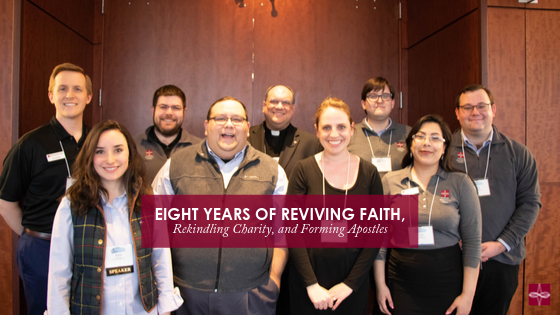
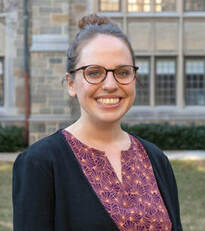
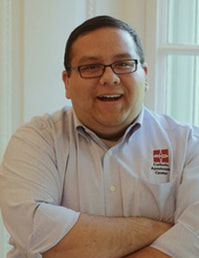
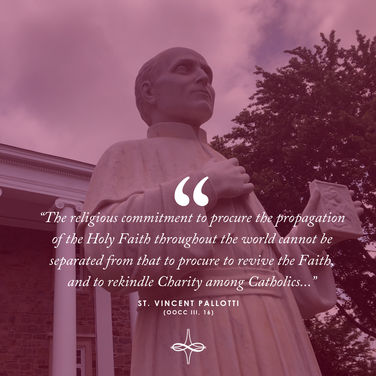
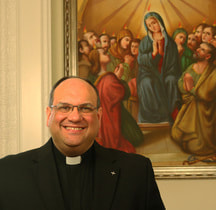

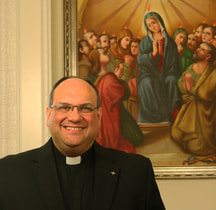
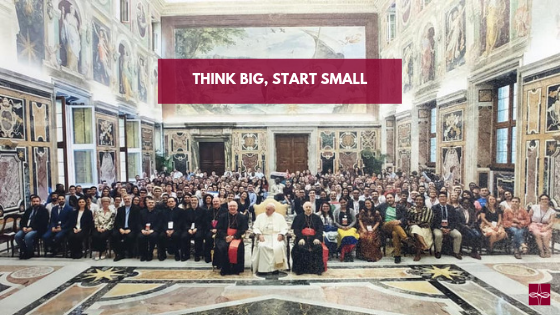

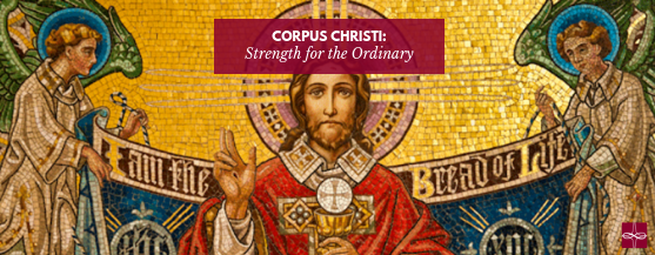

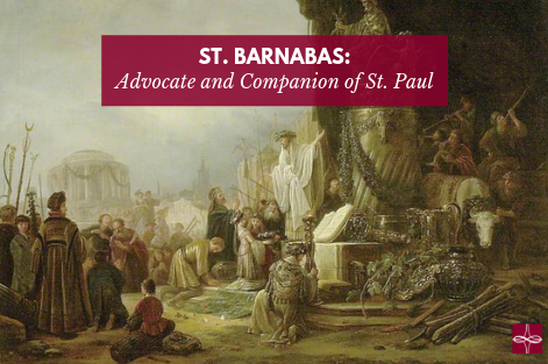

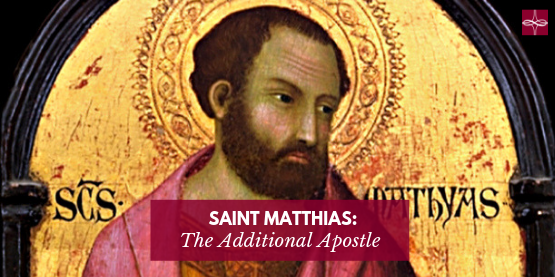

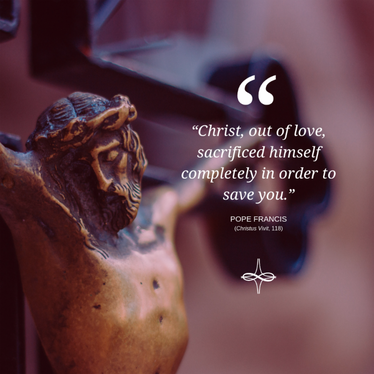
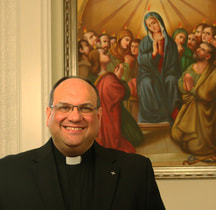
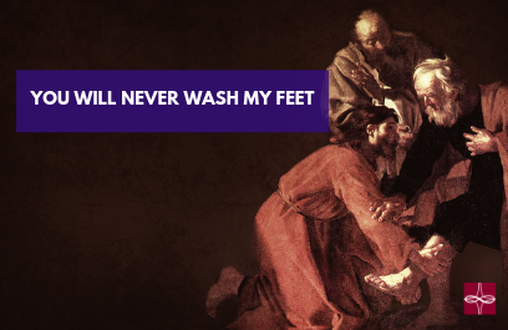

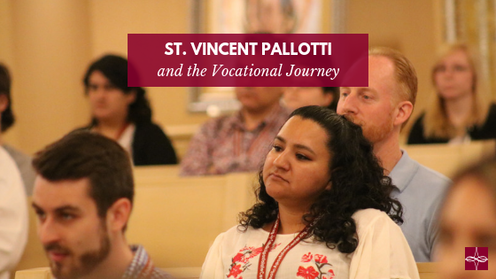

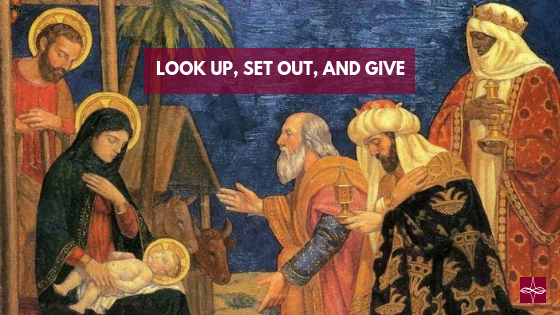

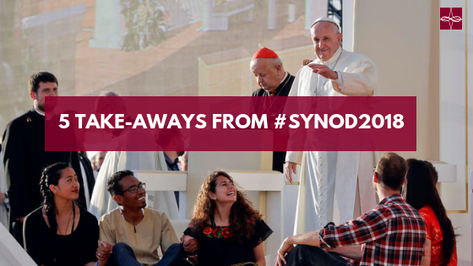

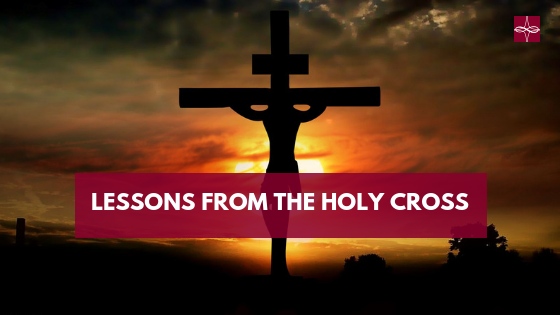
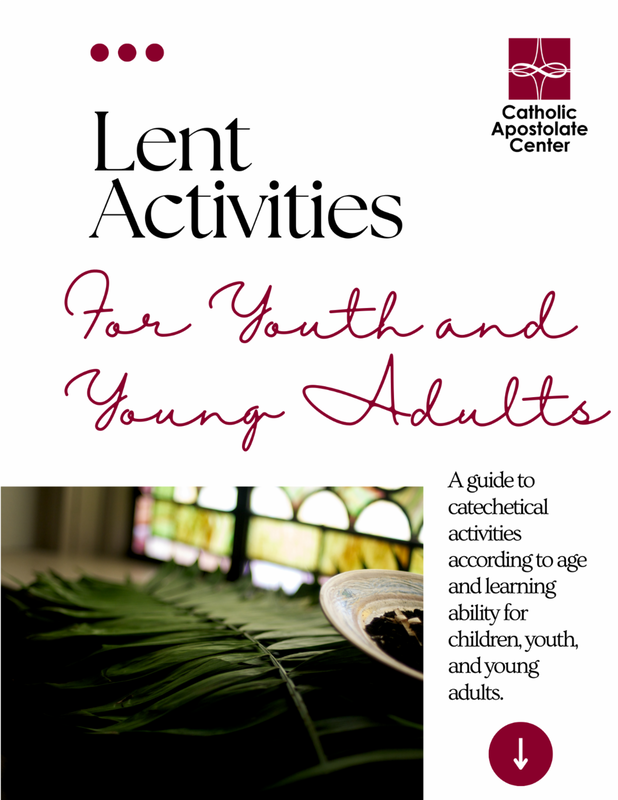
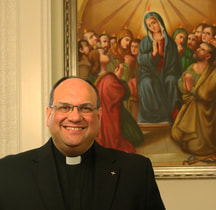
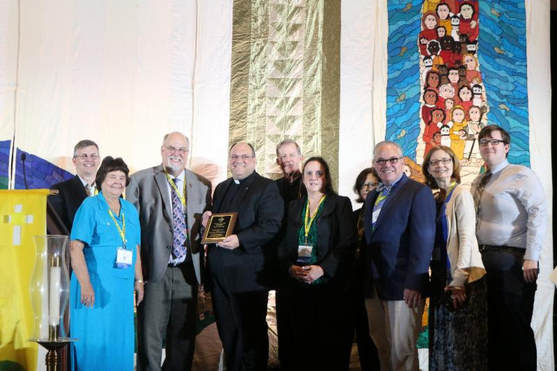
 RSS Feed
RSS Feed